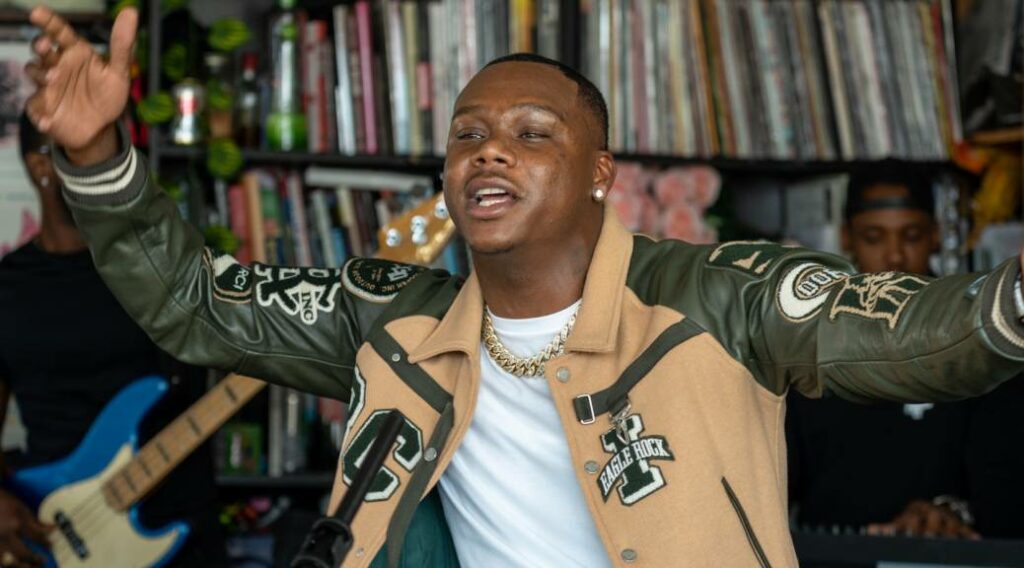While Symba claims that the Hip Hop game has advanced significantly over the past ten years, with artists learning to harness the power of social media and tap into their wide range of abilities, branding has taken precedence.
The “Ain’t Sayin Shit” recording artist recently said on an edition of the RapCaviar Podcast that success in the music business has nothing to do with one’s ability to be “dope.”
During a sneak preview of the discussion with fellow rapper MAVI, which the presenter Brandon Jinx Instagrammed, Symba remarked, “My stupid ass used to believe it was about being dope.” And that’s when I understood that the music business was created to benefit artists.
“A lot of us are just doing music for pleasure. Just having fun is all that matters. It will only be the homies. And after that, you add the business to it,” he said.
MAVI chimed in, “99 times out of a hundred, the rap n— is earning the least money off the rap n—.” The CEO of the label said, “He’s going to send so many people’s kids through school before he puts his kids through school, including the drug dealer, the jeweler, the stripper hoe at the club, the publicist, the airlines, and the publicist.”
Even rappers who receive a significant sum of money from the business might cash out, he continued. “For an album, you pay 30 or 40 million dollars. That’s not only because you are so skilled at creating music or generating money, though. It means that you promote to the audience a way of life that aligns with what the business is attempting to market.
MAVI said, “The music business is attempting to market a lifestyle, like selling alcohol in the club. club admission tickets. the show’s tickets. such as all this crap. “You’re the billboard,” Symba said, adding.
Symba, who is presently signed to Atlantic Records, has experienced a long road to success. The musician discussed the conventional route he followed to secure his first significant deal in an exclusive interview with HipHopDX after signing with his previous label, Columbia Records.

Really, it was a very traditional, natural procedure. Almost six years ago, I first met Chelsea Blythe, my manager. She was an Interscope intern at the time, and she had entered the studio where Nic Nac and I were working and heard me rap.
“Hey, I’m interning over at Interscope [but] I’ma bean A&R one day,” she said. “Let’s do it,” I thought. “Stay with me; trust in me, and I’ll believe in you.” At the time, I didn’t really have a team, a manager, or a support network. I had my mother with me as well as a few family members. So she essentially relocated me over here.
“[She] just taught me the fundamentals of writing bigger songs, establishing my identity as an artist, and understanding what our goals are. Four years later, she finally received an A&R position at Columbia, where she sang one of my songs during her first A&R meeting.
History then followed. When they contacted me for a meeting, I went with Chelsh, and everything worked out.

